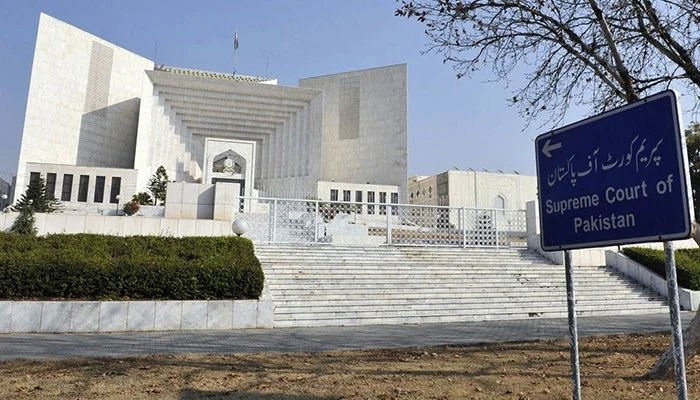
Recent controversial decisions by the Supreme Court of Pakistan (SCP) have, once again, brought into the limelight the increasingly interventionist role of the judiciary, especially of the Chief Justice of Pakistan (CJP). But how and why has this happened?
In a recent article, Reema Omer, Legal Advisor (South Asia), International Commission of Jurists, argues that “the answer lies in a powerful, uniquely placed post-restoration judiciary, which with the aid of sections of the media, the legal community, and some political parties, was able to undo the most significant changes in the new system. This was done through arm-twisting of parliament, threats of institutional clash and sweeping assertions about safeguarding the independence of the judiciary.”
Omer uses the release of the recording of the Judicial Commission of Pakistan’s recent meeting to show how the CJP has managed to retain the power to “recommend names of candidates who are then considered by the JCP for nomination to a parliamentary committee (PC) for appointment to the Supreme Court (SC)” even though this directly contravenes the “clear legislative intent in the 18th Amendment to make the process of judicial appointments — including initiation — more transparent, accountable and inclusive?”
As Omer shows, prior to the 18th Amendment “the president in consultation with the CJP appointed judges to the SC. Through a series of judgements, the SC made the CJP’s recommendations virtually binding on the president.”
These include an order passed in October 2010 in response to challenges to the 18th Amendment. “Among other arguments, the petitioners contended that the CJP is paterfamilias ie the head of judiciary, and it was against judicial independence for his role to be limited to only one vote in the JCP. A full court of 17 judges heard the petitions. In its interim order, the SC unanimously held that Article 175-A shall be given effect in a manner that: the JCP “shall be convened by the CJP in his capacity as its chairman”; names of candidates for appointment to the SC “shall be initiated” by the CJP; and the CJP “shall regulate its meetings and affairs as he may deem proper”. The SC gave no reasoning to support its interpretation of Article 175-A to read powers of initiation as well as control of the JCP’s proceedings to vest in the CJP.”
The CJP’s role “was further cemented in 2012, when a presidential reference, among other questions, asked the SC to clarify “whether the Constitution prohibits individual members of JCP to initiate names for appointment of judges to the Supreme Court…” In its opinion, the SC said Article 175-A was silent on the JCP’s procedure and empowered the commission to regulate its proceedings. In light of JCP rules, no member of the commission, except the CJP (or the chief justice of the Federal Sharia Court or of a high court) could initiate the nomination for appointment against a vacancy. The court elaborated this was the correct decision as the CJP was the best person to evaluate a person’s caliber to be nominated as a judge; initiating the nomination is “an act of mere procedure”; and allowing every JCP member to recommend names is impractical as there would be too many candidates to consider. The SC, however, did not suggest the Constitution ‘prohibited’ other methods of initiating nominations.”
Omer cites former CJP Asif Saeed Khosa who in his dissent to the 18th/21st Amendment judgement warned: “We shall be naïve if we deny that if we had some very honorable and respected paterfamilias in the past then there were also others who were not held by the people in that esteem. It surely is painful to let go a power which one has exercised and enjoyed for a long time, but it is good to be graceful in parting with power when time for the same comes.”
Seeing how interventionist the Supreme Court has become and bearing in mind that the country is going through political and economic instability, it is even more critical to rethink the Chief Justice of Pakistan’s dominant role in judicial appointments.
![]()





